GHG Panel Members
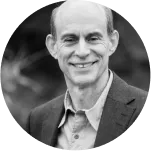
Randall Spalding Fecher (Chair)
Randall is a Director at Carbon Limits AS. He has more than 25 years’ experience in carbon market policy, program, and project development, including expertise in carbon crediting methodologies. He assesses crediting programs and methodologies for the Carbon Credit Quality Initiative (CCQI), is a Subject Matter Expert for the Expert Panel of the Integrity Council for the Voluntary Carbon Markets (ICVCM), a member of the World Bank’s Article 6 Technical Expert Group, and a member of the Methodology Panel for the Adaptation Benefit Mechanism. In addition to being on the Calyx GHG Integrity Panel, he has provided his expertise to Calyx Global on renewable power methodologies and projects. Randall holds a BA in Biology from Harvard University, a MALD in International Environmental Policy and Development Economics from the Fletcher School at Tufts University, and a PhD in Energy and Development Studies from the University of Cape Town.

Derik Broekhoff
Derik is a Senior Scientist in the Seattle, Washington office of the Stockholm Environment Institute. He has over 20 years of experience in energy and climate policy including the effective design and implementation of environmental market mechanisms, and assessing subnational and local climate mitigation policies. Prior to joining SEI, Derik was Vice President for Policy at the Climate Action Reserve, where he oversaw development of the Reserve’s voluntary carbon offset market and its transition into California’s regulatory cap-and-trade program. Before that, he led work for the Greenhouse Gas Protocol Initiative at the World Resources Institute, working on corporate and project-based greenhouse gas accounting. As a carbon accounting expert, Derik has advised state, national, and multi-national policy initiatives on program designs, including voluntary and regulatory offset programs. Derik has a master’s degree in public policy (MPP) from the University of California at Berkeley, and a bachelor’s degree in international relations from Stanford University.

Hilda Galt
Hilda is a Lead Consultant at Climate Focus, an international climate policy advisory firm. She provides advisory services to foundations, governments, multilateral institutions, and the private sector on a wide range of climate-related issues. She has more than 10 years’ experience in carbon markets, and has worked closely with project developers, carbon credit buyers and public and private organizations across the carbon market. This includes supporting clients in navigating and understanding carbon markets, conducting project due diligence and quality control, and assisting in certification, monitoring and issuance of carbon credits. Hilda holds two degrees from the University of Edinburgh – an MSc in Carbon Management, and a BSc in Ecological Science (Conservation and Ecological Management). She also holds a diploma in Monitoring and Evaluation in Development Projects from the Maastricht School of Management.

Quirin Oberpriller
Quirin is senior project manager at INFRAS, a research and consulting firm based in Zurich, Switzerland. He has 10 years of experience validating and verifying carbon projects (mainly for the Swiss compliance system) and helped develop carbon methodologies for the Swiss government related to landfill gas and district heating. He has worked on the implementation and development of emissions trading schemes, and energy and climate agreements. His work includes international climate policy (including Article 6 of the Paris Agreement), climate scenarios in Switzerland and China, and economic evaluations on climate costs, circular economy, local air pollutants, and drought warning indicators. Quirin holds a master’s degree in atmospheric and climate sciences and a PhD in Climate Economics from ETH Zurich. He also holds a diploma in process engineering from TU Munich.

Manuel Estrada
Manuel is an independent climate change consultant. He has more than 25 years of experience on climate change-related issues, particularly carbon accounting, climate finance and REDD+. As Climate Change Director at the Ministry of Environment of Mexico, he actively participated in the UNFCCC negotiations, including on the CDM, market mechanisms, finance and REDD+, among others. As a consultant, he has provided advice and support to governments, private sector companies, NGOs, international organizations and research centers. He was part of the working groups that developed the VCS standards on REDD+, jurisdictional and nested REDD+ (JNR), ARR and wetland rewetting and conservation. He later acted as REDD+ Innovations Director at Verra and currently supports the FCPF Carbon Fund. He is a member of the UNFCCC roster of experts and has taken part in more than 15 country report assessments, going from REDD+ reference levels and technical annexes to national GHG inventories and the provision of financial and technical support and capacity building to developing countries.
SDG Panel Members
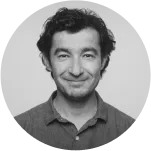
Haseeb Bakhtary (Chair)
Haseeb is a senior consultant at Climate Focus with experience in policy research at the intersection of climate change mitigation and adaptation and sustainable development. He has led the development of several frameworks to assess national and global progress toward sustainable development goals – particularly on food, forests and climate and including assessments for the New York Declaration on Forests. Haseeb has authored several policy and recommendation papers on enhancing public and private sector policy goals and strategies to address climate change through action on addressing deforestation and building sustainable food systems. His previous roles include helping Afghan universities build public administration faculties for Deutsche Gesellschaft für Internationale Zusammenarbeit (GIZ). He received a B.A. in Law and Public Policy from the University of Mysore, Masters in International Law and Human Rights from London Metropolitan University, and a Master of Public Policy from University of Potsdam.

Robert Müller
Robert is an independent global change consultant and an expert on land use change in the tropics, biodiversity conservation, and carbon finance. In 2000 he moved to Bolivia to work in conservation and sustainable land use. After his return to Germany in 2005, he became a carbon project developer, handling a large variety of projects across the world, ranging from household energy to waste management and reforestation. Believing that carbon projects should produce more than carbon credits, but the field lacked methods to systematically measure this, he decided to approach sustainable development goal (SDG) impact measurement scientifically and gained support from Andrea von Braun Stiftung for interdisciplinary research. The outcome was a practical approach for defining project-based SDG indicators, which is a basis for the Calyx Global SDG assessment framework. Robert is a trained biologist with a PhD in Geography from the University of Göttingen.

Joanna Durbin
Joanna is an independent consultant with over 30 years of experience supporting the development of local institutions and enabling conditions for community-based management of natural resources, for biodiversity conservation and for community development, including twenty years based in Madagascar. Most recently, she was the Chief of Party of USAID Mikajy project conserving biodiversity, establishing sustainable natural resource management, promoting conservation-friendly value chains, improving livelihoods and strengthening land and resource tenure security in two landscapes in Madagascar. Additionally, she has 13 years of experience leading the Climate, Community & Biodiversity Alliance (CCBA), developing standards, safeguards information systems, and policy and governance assessments to facilitate support and finance for land-based carbon activities that credibly generate benefits for the global climate, local communities and biodiversity. She has a PhD in Ecology and Anthropology from the University of Kent and a Masters degree in Natural Sciences from Cambridge University.

Fabian Schmidt-Pramov
Fabian is Co-Founder and CBDO of biometrio.earth, a company providing digital and AI-driven solutions for biodiversity monitoring. With extensive experience in tropical forestry, carbon markets, supply-chains and biodiversity, he has worked across multiple regions, including Central- & South America and South-East Asia. Fabian holds a Master's degree in Tropical Forestry and Management from the Technical University of Dresden. With more than 15 years of experience, he has a strong background in developing and implementing nature-based solution projects and mobilizing finance for forests.
Environmental and social risk panel members

Daniela Rey Christen (Chair)
Daniela is the founder and director of Climate Law & Policy. She serves as an advisor to numerous governments, climate funds, private companies, and foundations on climate change law, policymaking, and implementation. She is also a renowned international expert on environmental social and governance safeguards and UN Sustainable Development Goals. Daniela has led the design and adoption of environmental, climate change, and sustainable development programs/projects (e.g., Climate Change Acts, National Adaptation Plans, REDD + strategies, Climate Finance Strategies, etc.), in countries around the world. At the global level, Daniela has provided strategic policy analysis and design support to multilateral funds and organizations. She holds an MSc in Environmental Change and Management from the University of Oxford and a law degree from Universidad de Los Andes in Chile.

Tony La Viña
Tony is the Associate Director for climate policy and international affairs at the Manila Observatory and head of the Klima Center, the legal and policy arm of the Observatory. Tony has served for more than 30 years as the lead negotiator for the Philippines in implementing conventions on Biological Diversity and Climate Change. He played a key role as a facilitator in the Land Use Change (LULUCF) negotiations in Kyoto and led the Reducing Emissions from Deforestation and Degradation-Plus (REDD+) negotiations, including the Cancun safeguards under the UNFCCC. Tony is a trained lawyer and holds a Master's in Law and a Ph.D. from Yale University.

Jennifer Laughlin
Jennifer Laughlin is the Global Safeguards Advisor and Stakeholder Response Mechanism Coordinator at the United Nations Development Programme (UNDP). With over 15 years of expertise, Jennifer has been instrumental in supporting developing countries in evaluating and managing social and environmental risks linked to national and subnational climate and forest programs. She co-led the design, establishment, and rollout of UNDP's Social and Environmental Standards (SES), Stakeholder Response Mechanism (SRM), and Social and Environmental Compliance Unit (SECU). Currently she is responsible for leading the safeguard component of the recently launched UNDP's High-Integrity Carbon Market Initiative. Jennifer received a B.A. in Philosophy and Religious Studies and holds a Master's in International Development from SOAS University of London.
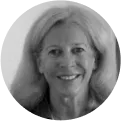
Jill Shankleman
Jill is an independent Social and Environmental consultant and specializes in working with investors and lenders to understand and mitigate political, social, and environmental risks. With over 30 years of global consulting experience at both corporate and project levels, she has provided her expertise to various companies and held a senior role as a social and environmental specialist within the World Bank’s political risk insurance arm (MIGA) and the Dutch Entrepreneurial Development Bank (FMO). Jill has significantly contributed to the field through extensive publications on the social, environmental, and political risks associated with investment in the extractive industries. She holds a PhD in Sociology from Essex University and academic qualifications in international human rights law from Oxford University.
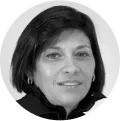
Lorena Aguilar
Lorena is the Executive Director of the Kaschak Institute for Social Justice for Women and Girls at Binghamton University. She is a global gender advisor with over 30 years of experience in initiatives related to public policy development, local institution-building, and the integration of social and gender considerations across various projects. Lorena served as Vice Minister in the Ministry of Foreign Affairs and Worship of Costa Rica and has played a leading role in the development of numerous national policies, sustainable development conventions, and finance mechanisms relevant to advancing human and women’s rights. She received a B.A. in anthropology from the University of Costa Rica and holds a Master’s Degree in Cultural Anthropology from the University of Kansas.
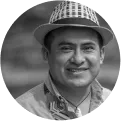
Pablo Mis
Pablo is the Executive Director of the Julian Cho Society, a registered non-profit indigenous organization in Belize. Over the past twelve years, in collaboration with their community partners the Maya Leaders Alliance and Toledo Alcaldes Association he has been an active leader for the customary land rights of the Maya people in southern Belize. Pablo is a current member of the Advisory Board of Trustees of the United Nations Voluntary Fund for Indigenous Peoples. He has actively been involved in advocating for Indigenous Peoples rights within the United Nations systems; promoting the application of Free, Prior, Informed Consent; direct inclusion of Indigenous Peoples in climate change discourse including in equitable benefit sharing schemes of REDD+ and result based carbon payments. Pablo holds a bachelor’s degree in Geography from the University of Hawaii and has completed his program courses in Human and Social Development with a Specialization in Indigenous Governance at the University of Victoria, Canada.